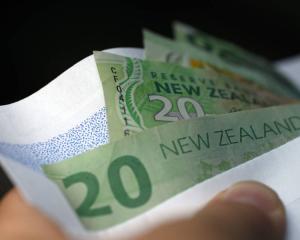During the past two weeks, most of the listed electricity companies have reported either monthly or quarterly statistics, highlighting mixed performances across the sector. Business editor Dene Mackenzie talks to Forsyth Barr broker Suzanne Kinnaird about industry conditions.
January had plenty of rainfall towards the end of the month, but up until then it had been "reasonably dry'', particularly in the South Island, Forsyth Barr broker Suzanne Kinnaird says.
Despite the generally dry conditions, wholesale electricity prices were subdued.
Otahuhu averaged $71.69 per megawatt hour (MWh), 29% below the previous corresponding period (pcp).
The main reasons for the lower prices were likely to be the better North Island hydro generation (25% higher than the pcp), lower electricity demand (down 4.4%) and the rain in the last week in January, she said.
Bluff smelter operator New Zealand Aluminium Smelters enjoyed a good second half of January.
Earnings per tonne increased to more than $300 at some points.
The smelter was looking more profitable than a few weeks ago.
Renewable Energy Certificate prices in Australia had continued to surge and were now above $A80 MWh.
When combined with wholesale electricity prices, eligible plant received more than $A120 MWh.
Meridian Energy was the main beneficiary, as it took spot exposure to prices on its two Australian wind farms.
In contrast, Trustpower fixed the price it received, Ms Kinnaird said.
Mighty River had been affected by weak operating statistics, low Kupe production and exposure to methanol prices.
Meridian numbers were up $1million, due to higher renewable energy prices in Australia.
Contact Energy
Contact Energy reported a strong set of statistics for December, meaning the first half of 2016 would be only slightly down on the 2015 first half.
More importantly, it pointed to an improved earnings outlook longer term, Ms Kinnaird said.
"January was a little mixed, with weak hydro partially offset by another strong geothermal performance.''
Contact's operating profit was $41.5million in December.
The driver of the result was the generation mix.
Record geothermal generation, strong hydro generation and low thermal combined to produce a cost of generation of just $26.30 MWh.
With Otahuhu now closed, Contact should have more months in which low cost of generation drove strong performance.
The retail position continued to struggle.
Customer numbers were down, sales volumes down and prices had lifted only modestly, due to a mix improvement among mass market, commercial and industrial.
Forsyth Barr had a share target price of $5.45 and an outperform rating on Contact.
Genesis Energy
Genesis Energy's December statistics were mixed. Kupe production was lower than expected. There were some highlights coming through in the energy portion of the business.
January's operational performance appeared to have been very similar to December 2015 and Huntly production continued to be relatively strong, Ms Kinnaird said.
The revised profit forecast of $332million, down $3million, reflected weaker-than-expected Kupe production, offset by some better electricity metrics. Oil prices were low but Genesis was well-hedged at a price above $US80 a barrel, although it did have exposure to lower methanol prices, which were linked to oil prices, through its contract with Methanex.
The share target price was unchanged at $2.09 and there was an outperform rating on Genesis.
Meridian Energy
The start of 2016 was dry for the South Island generators and it was only late in the month lake levels were topped up, Ms Kinnaird said.
As a result, Meridian's hydro generation was about 4% lower than the pcp and 10% lower than average.
January was normally Meridian's higher generation month, given the snow melt.
But with lake levels getting back to close to normal by the end of the month, there was no great concern about the outlook.
The share target price had been increased 4c per share to $2.54 and the rating had been moved to neutral from outperform.
Mighty River Power
Mighty River Power's second-quarter operating statistics were largely below expectations. Less electricity was sold, at a lower price.
"Add in below-average hydro generation volumes, and Mighty River has had a few difficult months.''
The weaker operating statistics had resulted in a $8million profit downgrade, Ms Kinnaird said.
The new $484million operating profit forecast included the $10million release of a foreign exchange reserve.
That had flowed through to a 2cps fall in the target price to $2.80.
Mighty River was now viewed as being fairly valued and other electricity stocks offered better value.
The company offered investors a solid dividend yield and modest growth.
It was the only electricity stock that would be paying a fully imputed dividend in the 2016 financial year.
TrustPower
January appeared to have been another difficult month for Trustpower and low hydro generation hampered the earnings outlook.
Forsyth Barr estimated TrustPower's January generation was 157 GWh, similar to the pcp but 10% below the long-term average.
Hydro generation was again the biggest issue. Both North and South Island volumes were weak.
On the positive side, the retail strategy continued to add customers although, as normal, additions had slowed through the summer period.
"TrustPower has great exposure to the reinvigorated Australian renewables market with renewable prices supportive of new wind farm developments. In addition, we like the proposed demerger which should add value to shareholders and make developing the wind farms easier.''
The share target price has increased 5cps to $8.45, the earnings forecast has been lowered by $2million to $338million and the company has an outperform rating.











